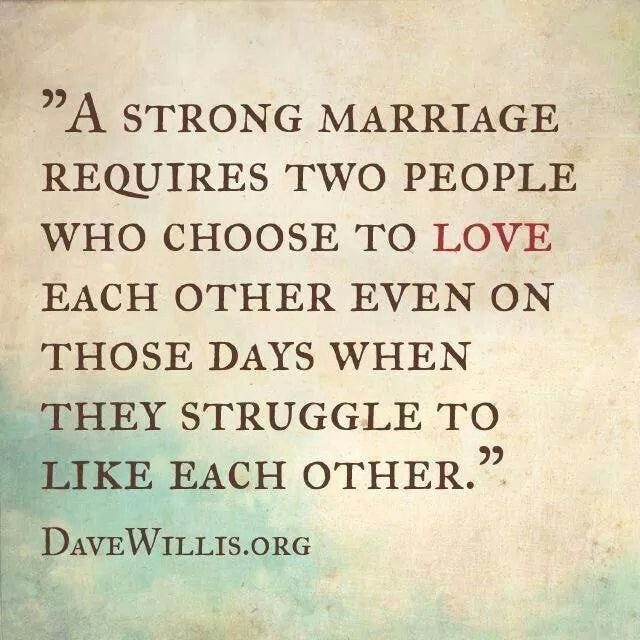Another day in the life of bruised and battered male egos
Repeat after me: "We are not the money we make. We are not the money we make...."
The number of married women who make the same or more than husbands has tripled in the last 50 years, with 16% of wives earning more.
Julia Pollak, Chief Economist, ZipRecruiter
Ah, the fragile male ego. Men are protectors, breadwinners, and providers. We’re expected to be the ones who kill the buffalo and bring the meat home for our families. If our hunt isn’t successful, we don’t eat. That’s a lot of pressure, which means a lot is riding on our shoulders, right, guys?
But what if your partner’s a better shot? What if she can kill more buffalo than you can? Does that make you less of a man? That you’ve been neutered and should turn in your man card? Or are you genuinely happy that at least one of you is a decent shot and that your family will have meat for the winter?
This topic is becoming increasingly stressful for many men, especially those raised in traditional households. What do you do when your spouse is on a career track where she’s experiencing more success and making more money than you are?
There are two ways you can choose to look at this:
You can resent her for making more money than you do and feel like a failure because you’re being out-earned by a woman. This is not a universally recommended approach because it can stress a relationship and create tension between a couple.
You can be grateful that more money is coming into the family and look at it as “Yay, more for us!” This is a more healthy and mature way to deal with the issue because more money is almost always better…right?
I raise this issue because I’ve had to deal with it in my own marriage. Because of our career choices, Erin has always been very well financially compensated. She makes more money than I do. She makes a LOT more than I do, by a factor of…well, let’s just say it’s a lot more.
At first, the fact that my wife made significantly more money bothered me, and I found myself dealing with my bruised male ego. Of course, it made no difference to her; her ego wasn’t wrapped up in it. It took a lot of talking for me to arrive at a place where I understood that her making more money meant more for us…and that’s a good thing.
In my case, my ADD has meant that I’ve been significantly underemployed my entire career, which contributes to the disparity in incomes.
Then, she got a new job at the beginning of the year, which involved a significant bump in pay and a bunch of perks. Of course, I’m happy for her; she’s worked damned hard to get where she is, and I certainly don’t begrudge her the success she’s achieved. It’s good to see her recognized for the good things she’s done throughout her career. If anyone deserves to be recognized for the hard work she’s put in, it’s Erin.
Now, though, she makes exponentially more than I do. Now and then, I struggle with the feeling that I’m not contributing much financially, but Erin has repeatedly made the point that each of us is contributing what we can. It’s just that she’s ridiculously well compensated for what she does. The downside is that she has to travel 30-40% of the time, but that’s the trade-off we agreed to make.
The significant disparity in income was difficult for me to get used to. It was hard to feel as if I was making an equal contribution. After a few lengthy conversations, what came out was that each of us contributed to the relationship in different and not always similar ways. Money is only one part of it.
It took some time for me to wrap my head around that. I tried to tell myself it didn’t matter, but I could still feel my bruised male ego trying to rise to the surface. In the end, though, I understood that it need not matter, and the only reason it did might be that I couldn’t get out of my way.
In a relationship, the only rules that matter are the subsets that the people involved agree upon. If those rules don’t mesh with conventional social norms, who cares? No one else has to live by those rules, so if the two people in the relationship agree that they’re sensible and workable, nothing else matters.
Our situation isn’t particularly unique. It’s becoming increasingly common as women become more independent and successful in the workplace. This is a good thing, but it does point to
an unsettling and increasingly relevant truth: as the gender pay gap narrows to the slimmest on record, entrenched beliefs and hangups are slow to evaporate. Women make 84 cents for every dollar a man earns – up from just above 60% of what men made in 1979, the first year the US government began collecting data….
The reasons that the numbers are moving in women’s favor are myriad. For one, top growing job categories, including those in healthcare, are predominantly occupied by women. Women are having children later, which reduces the lifelong “wage penalty” that comes with career interruptions. Some men deal with the discomfort of earning less than their partners by leaning into the dynamic and posting #sixfigurewife TikTok tributes. Others rely on chauvinistic gurus like Andrew Tate or Jordan Peterson, the Canadian psychologist who has made the anti-manspreading movement one of his targets.
“I have a theory that women who are powerful seek out men who are complementary,” said Stephanie Danler, the bestselling author of the novel Sweetbitter. “A lot of us unconsciously search for balance, and if you are an ambitious woman then I often think you are searching for a partner who can nurture that.” Her husband, a landscape architect, recently devoted three years to caring for their young children. He has just returned to work. “The porous boundaries are revealing themselves again,” said Danler, who now finds herself juggling Hollywood meetings and writing sessions with children’s doctors’ appointments and playdates during the work day.
If we accept the notion that women have every right to be ambitious, which we should, then we should also welcome the idea that marriage, to be successful, must be a team effort. Of course, the terms must be negotiated by the parties to a relationship and, most importantly, must then be adhered to, but for many men, getting used to not being the high earner is a challenge.
“Nicole” (her middle name) works in finance and makes $115,000 a year, while her boyfriend, a dog walker who plans to go to graduate school, earns between $20,000 and $25,000. The biggest stress, she said, comes from her parents, who are dubious about the wage disparity and “tell me to make sure he’s not taking advantage of you”, she said. “There’s a sense that they think I could do better, and I’m always managing that.”
Power roles and “power dispersion” are a key theme in the practices of Sue Marriott and Ann Kelley, who are therapists in Austin, Texas, wives and co-hosts of Therapist Uncensored podcast and co-authors of the upcoming book Secure Relating. “Both the men and the women often report that they want equity, but then when it happens, it hits our body in a different way,” said Kelley. “We think we’re supposed to feel good about it. But when a woman is making more than a man, it can make both of them struggle, and something will feel off or wrong.” Marriott added: “There’s a split between our conscious thinking and our limbic, fight-or-flight learning of, like, what we’ve actually internalized as our map of the world.”
Even if the parties to a relationship have negotiated an agreement that works beautifully for them, everything in the outside world is aligned against them. The world still expects the man to be the breadwinner and the woman’s income to be secondary and less than.
When a woman makes significantly more than a man, there often is an automatic suspicion that the man is “taking advantage of her.” It’s something I’ve wondered about. Since Erin makes significantly more than I do, are there those around us who believe I’m taking advantage of her financially?
I finally realized that it doesn’t matter what anyone else thinks. Those in our lives who are true friends aren’t going to judge us for our situation, which we’re OK with. And if someone does judge me…well, f**k ‘em. We all know what opinions are like.
The world is changing; in this respect, I think it’s good. It shouldn’t matter which person in a relationship makes the most money. American men have too much of their ego tied up in money. You are not the money you make…which is good because I’d be in trouble if that were the case.
So, while I still occasionally deal with pangs of creeping inadequacy, I can talk myself down. Because when all is said and done, it’s more money for us, and it need not be a bigger deal than that.
And more money is almost always better than less.
(All of my posts are now public. Any reader financial support will be considered pledges- support that’s greatly appreciated but not required to get to all of my work. I’ll trust my readers to determine if my work is worthy of their financial support and at what level. To those who do offer their support, thank you. It means more than you know.)











I've had to do considerable mental/emotional adjustment to accept my current financial situation. I'm on social security -- only -- which means I'm often leaning on friends' generosity when it comes to recreational activities. I'm really no better off economically than I was in Grad school.
Speaking of grad school, one of the things I noticed was that there was a trend for women to be attracted to men who were ahead of them in the program. (This was only a trend, not a universal fact.) This meant that the guy finished up before she did, and so went out on the job market before her. If he got a job, and they were living together (common) they either have to break up (rare) or she follows along with him, catastrophically harming her own career (can't take classes, can't meet with dissertation adviser, etc.)